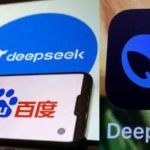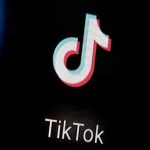Beijing/Shanghai (Reuters): Claims that a version of Huawei’s Pangu Pro big language model has replicated parts of an Alibaba (9988.HK) model have been denied by the company’s artificial intelligence research group, which maintains that the model was created and trained separately.
A day after an organization named HonestAGI published an English-language report on the code-sharing website Github claiming that Huawei’s Pangu Pro Moe (Mixture of Experts) model shown “extraordinary correlation” with Alibaba’s Qwen 2.5 14B, the Noah Ark Lab division made its announcement on Saturday.
According to the report, this implies that Huawei’s model was developed by “upcycling” rather than being trained from start, which sparked intense debate among Chinese tech-focused media and online AI communities.
The study further stated that its results suggested possible copyright infringement, technical report falsification, and misrepresentations about Huawei’s model training expenditure.
The model, according to Noah Ark Lab’s announcement, was “not based on incremental training of other manufacturers’ models” and had “made key innovations in architecture design and technical features.” It further stated that it is the first large-scale model that is fully based on Huawei’s Ascend processors.
Without specifying which open-source models it drew from, it also stated that its development team had closely followed the guidelines for open-source licenses for any third-party code utilized.
A request for comment from Reuters was not immediately answered by Alibaba. Reuters was unable to get in touch with HonestAGI or find out who owned the company.
The low cost of the open-source model R1 from Chinese firm DeepSeek, which was released in January of this year, startled Silicon Valley and led to fierce rivalry among China’s IT heavyweights to provide competing goods.
One of Alibaba’s small-sized Qwen 2.5 model families, the Qwen 2.5-14B was introduced in May 2024 and is compatible with smartphones and PCs.
With its initial Pangu release in 2021, Huawei made an early entry into the big language model market, although it has subsequently been seen as behind competitors. In late June, it made its Pangu Pro Moe models publicly available on the Chinese development platform GitCode in an effort to encourage developers to use its AI technology.
In contrast to Qwen, which caters more to consumers and offers chatbot services like ChatGPT, Huawei’s Pangu models are more frequently utilized in the manufacturing, banking, and government sectors.












